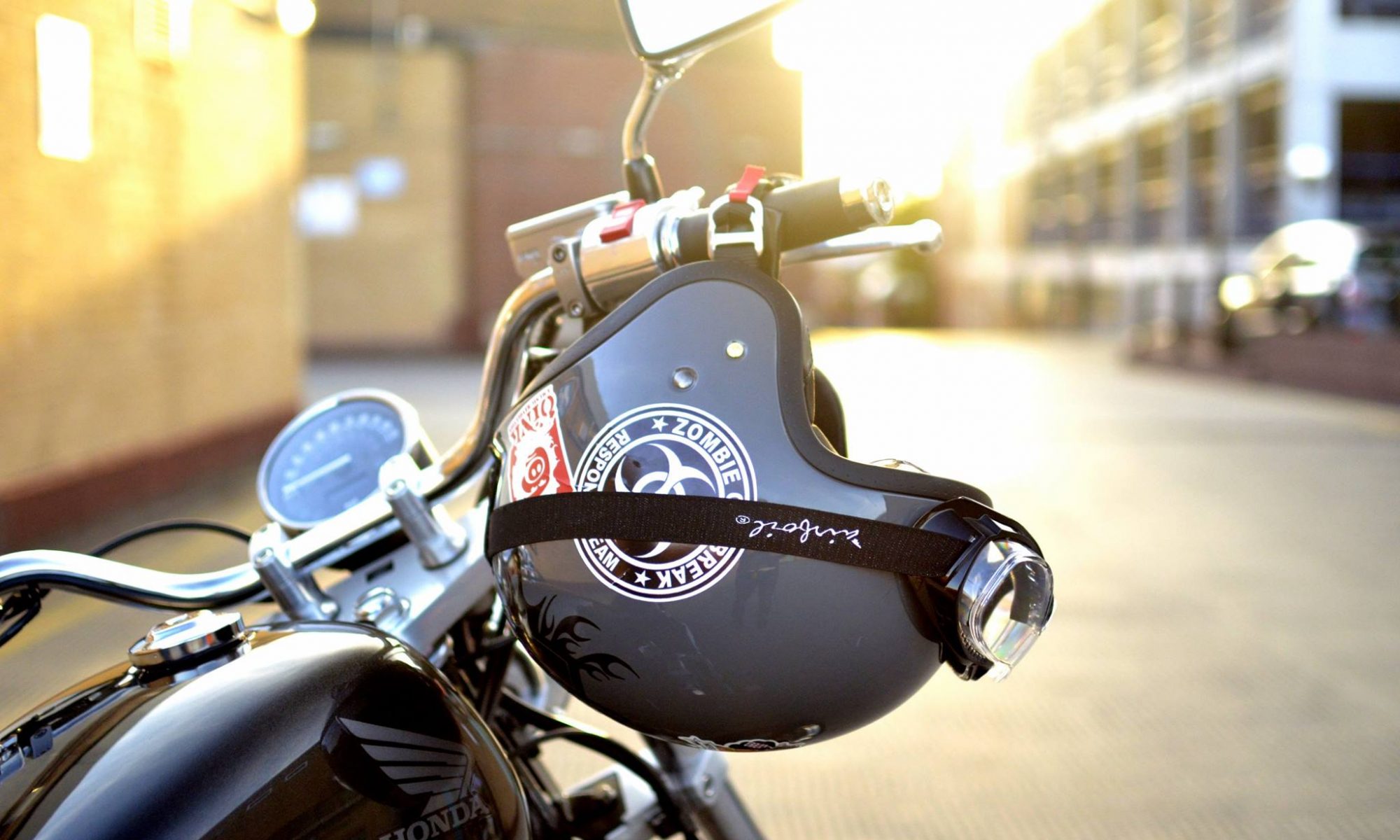After Market additions (Already On):
• Renthal Handel Bars
• Round Alloy Foot pegs (Front)
• Tidied rear end – Cut down Plate Holder
• Small rear indicators
• Pyramid front fender extender
• Skidmarx Rear Carbon Hugger
• Skidmarx ‘fitted’ belly pan – Colour Matched to Candy Tahitian Blue
• SkidMarx high Fly screen (light tint)
• R&G Crash Bungs (just in case!)
• Scottoiler
• MetaTag Alarm
Parts Wish list:
• K&N Air Filter
• Performance Exhaust (but must have same aesthetics as stock)
• Xeon Lights
• Radiator Cover
• Tank bag or Rear luggage rack/unit
• Small clock for handlebars
Tyres Used: AVON Viper Sport
For the people who like numbers, here’s the technical specification:
|
Engine |
Liquid-cooled4-stroke 16-valve DOHC inline-4 |
|
Bore & Stroke |
65 x 45,2mm |
|
Displacement |
599 cubic centimetres |
|
Compression Ratio |
12:1 |
|
Carburettors |
34mm slanted flat-side CV type x 4 |
|
Max. Power output |
95.3/PS/12,000rpm (DIN) |
|
Max Torque |
6.3kg-m/10,000rpm (DIN) |
|
Ignition |
Computer-controlled digital transistorised with electronic advance |
|
Starter |
Electric |
|
Transmission |
6-Speed |
|
Final-Drive |
‘O’-ring sealed chain |
|
Dimensions |
(LxWxH) 2095x740x1065mm |
|
Wheelbase |
1425mm |
|
Seat Height |
790mm |
|
Ground Clearance |
140mm |
|
Fuel Capacity |
16 Litres |
|
Wheels.
|
FRONT: 17xMT3.50 hollow-section triple-spoke cast aluminium REAR: 17xMT5.50 hollow-section triple-spoke cast aluminium |
|
Tyres |
FRONT: 120/70ZR17 (61W) (Michelin/Bridgestone) REAR:180/55ZR17 (73W) (Michelin/Bridgestone) |
|
Suspension |
FRONT: 41mm telescopic fork, 120mm axle travel REAR: Mono-shock damper with 7-step adjustable preload, 128mm axle travel |
|
Brakes |
FRONT: 296mmx4.5mm dual hydraulic disc with dual piston callipers, floating rods and sintered metal pads REAR: 220mmx5mm single piston calliper hydraulic disc with sintered metal pads |
|
Dry Weight |
176kg (un-faired) |
(Referenced information taken from http//:www.hondahornet.com)
Further Info on the base model again citations taken from http//:www.hondahornet.com
Concentrating on the Original naked Hornet, the differences between the 1998/9 model and the 2000 model as follows:
• The 2000 Hornet has a 17 inch front wheel compared to the original Hornet’s 16 inch version. The front tyre on the 2000 model is slightly narrower. 120 as a pose to a 130.
The increase in size of the front wheel and the change of tyre spec as improved handling a great deal. My first Hornet was a 98, my current Hornet is a 2000 model and the difference is very noticeable, particularly when dropping into fast corners. The bike feels more stable and more positive. Sometimes the 1998/9 model felt a little ‘vague’.
• The 2000 Hornet has up rated brakes. It uses a stronger pass-over system at the front (being steel instead of reinforced rubber) which has improved the braking power considerably. To boost the brakes all round, Honda have also fitted better pads.
• The 2000 Hornet has black brake callipers as a pose to the gold ones of the 98/99 models.
• The 2000 Hornet has re-mapped ignition timing for a slight power increase and better response throughout the rev range.
• The 2000 Hornet has Gun Metal Metallic coated parts such as Grab rail, yoke top, foot peg hangers and engine. The original 98/99 Hornet had a bronzy coloured engine and the other parts were just grey alloy with a tendency to dull if not kept clean.
• The 2000 Hornet has different paint schemes, see above.
• The 2000 Hornet has a small red triangle trim on the foot peg hanger.
• The 2000 Hornet has a shorter tail as standard. (the sale of hacksaws will tumble<-->
